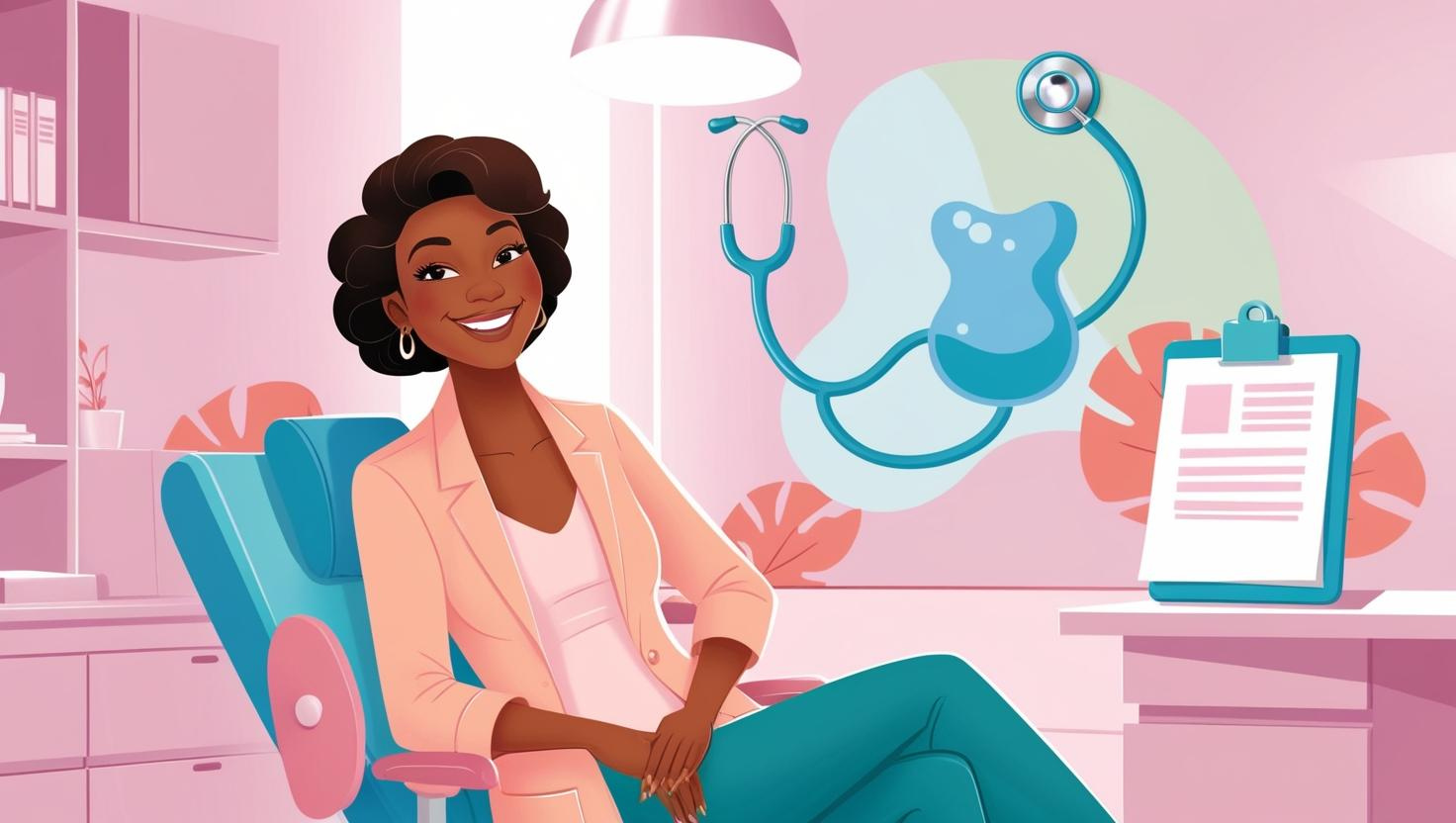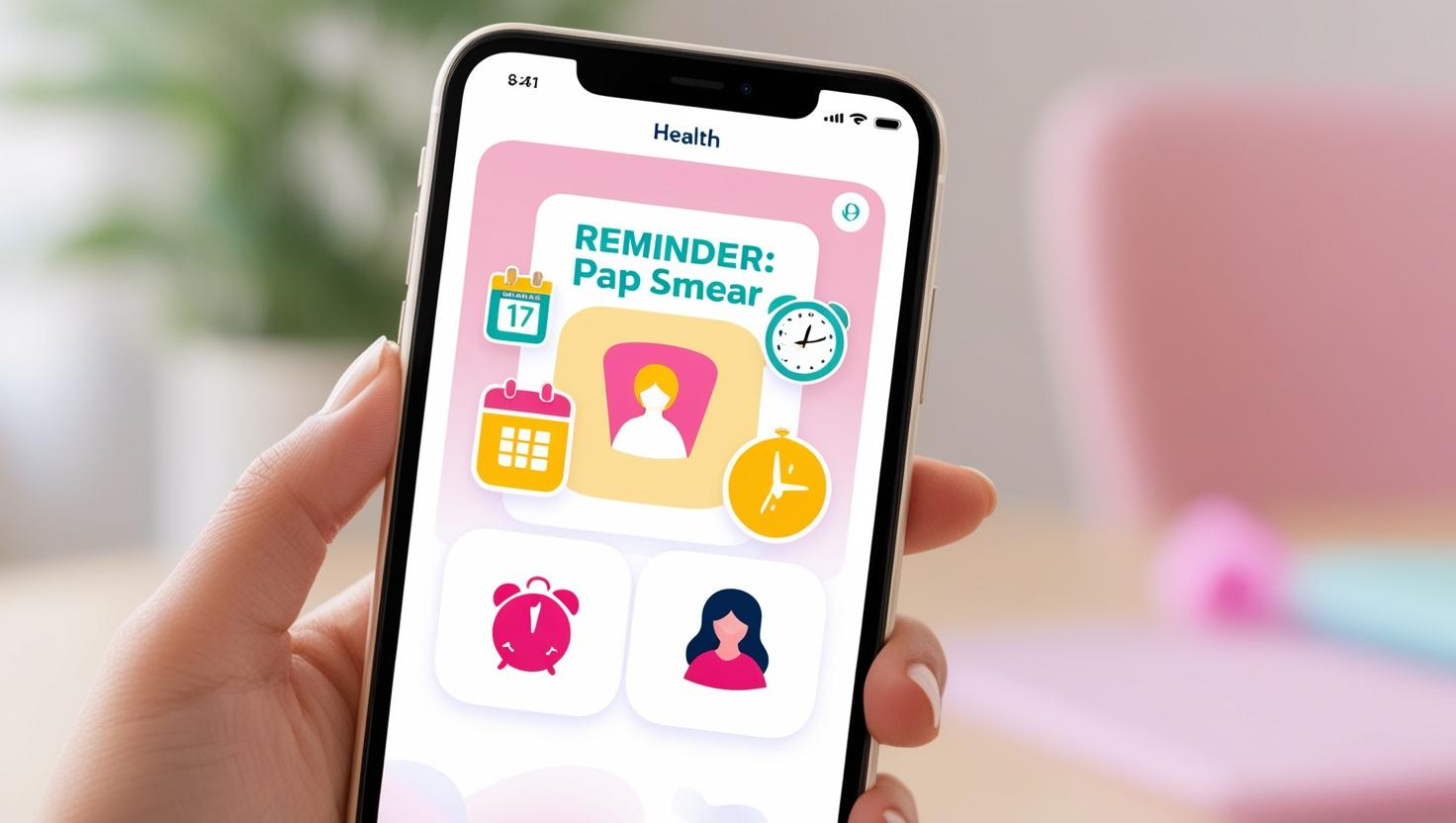- Home
- About Us
- Services
- Primary Care
- Preventative Services
- Transitional Care
- Annual Wellness Exams
- Acute Care Services
- Medical Clearance Examinations
- Chronic Disease Management
- Sports Physicals
- Geriatric Medicine
- Medication Management
- STD & UTI Testing
- Coordination of Care
- Telehealth Services
- Ordering Routine Labs and Scans
- Blog
- Patient Resources
- Contact Us

Mary Huntly APRN FNP-C
Key Takeaways
A Pap smear is a simple, preventative procedure that helps detect abnormal cervical cells before they become cancerous.
Preparing properly for your Pap smear can ease anxiety and ensure accurate results.
Regular screenings and open conversations with your healthcare provider are essential to protecting your cervical health.
Is it your first time getting a Pap smear, and you’re feeling a little unsure about what to expect? Don’t worry—you’re not alone! Preparing for your first Pap test can feel overwhelming, but with a bit of knowledge and guidance, you’ll feel more confident and ready to prioritize your health.
This blog will walk you through everything you need to know about Pap smears, from what they are and how to prepare, to what to expect during the test. By the end, you’ll feel empowered to take charge of your cervical health.
Introduction to Cervical Cancer Screening

Cervical cancer screening is a vital part of women’s health. Regular screenings help identify abnormal cervical cells before they develop into something more serious, like cervical cancer. The Pap smear is one of the easiest and most effective ways to reduce your risk.
A Pap smear is a quick, simple procedure that’s done during a doctor’s appointment. It’s used to detect cell changes on the cervix (the lower part of the uterus), providing early warning signs of cancer and HPV (human papillomavirus)-related changes. By catching any abnormal cells early, you can prevent potential health complications down the line.
Understanding and keeping up with these routine screenings is a powerful step in advocating for your long-term wellness. In addition to the Pap test, other screenings and vaccines may be recommended by your provider to offer comprehensive protection. Making time for your health today can lead to a healthier future.
Understanding the Pap Test
Before you step into your appointment, it’s helpful to have a clear picture of what the Pap test involves and why it matters. Many people are surprised to learn how quick and straightforward the process is. This knowledge can turn anxiety into confidence and ensure you’re informed every step of the way.
What Is It?
A Pap smear involves collecting a small sample of cervical cells to check for abnormalities.
Why Is It Important?
Catching abnormal (or precancerous) cells early can prevent cervical cancer from developing.
What Does It Look For?
It detects problems such as cervical cell changes caused by HPV, one of the leading causes of cervical cancer.
How Does This Help?
Your results indicate if further testing or treatment might be needed.
Think of it as a routine maintenance check for your body, just like taking your car in for a tune-up!
This preventive test has saved countless lives by catching issues before they escalate. It’s a small investment of time that offers enormous peace of mind and health benefits. If it’s been a while since your last exam, or you’ve never had one before, talk to a trusted provider about scheduling your test.
Preparation for the Pap Smear

The thought of your first Pap smear might bring up a mix of nerves and questions, but preparing ahead can help ease any anxiety. While the test itself only takes a few minutes, a little preparation can help everything go more smoothly and comfortably.
Being aware of what to avoid before your appointment and how to communicate with your provider can go a long way. Feeling informed and empowered helps to reduce stress and create a more positive experience. Here are some practical ways to prepare for your visit:
Avoid Certain Activities: Skip sexual intercourse, douching, or using vaginal medications/creams for at least 48 hours before your appointment as they can interfere with test results.
Timing Matters: While Pap smears can be done during your period, it’s best to reschedule if your flow is heavy. Light spotting is okay.
Relax and Breathe: If you’re feeling anxious, share your concerns with the healthcare provider beforehand. They are there to support you and ensure you’re comfortable.
Know What to Bring: Depending on your provider, you may need to bring your insurance card, a list of medications, or health questions.
Wear Easy-to-Change Clothing: Comfortable attire, like a dress or loose clothing, is best for easy access during the exam.
👉 If you’re due for a Pap smear or looking for a trusted provider in Las Vegas, reach out to Trinity Family Practice to schedule your appointment and get answers to any questions you might have.
What to Expect During the Test

One of the biggest sources of anxiety for first-timers is simply not knowing what to expect. Understanding the step-by-step process can help you feel more at ease and reduce fear of the unknown.
Rest assured, your provider will walk you through each stage of the test and check in with you to ensure your comfort. Here’s what happens during the procedure:
Getting Comfortable: You’ll lie on an exam table with your feet in stirrups. Your provider will guide you through each step.
The Speculum: A small instrument called a speculum is gently inserted into your vagina to hold the walls open. This allows your doctor to see the cervix.
Cell Collection: Using a soft brush or spatula, your provider collects a small sample of cervical cells.
Quick and Painless: The procedure is done in just a few minutes! While some people may experience mild discomfort or pressure, it’s typically not painful.
There’s no need to feel embarrassed or nervous—your healthcare team is experienced and focused on making the process as comfortable and efficient as possible.
HPV Test and Screening Tests
Pap smears are often paired with HPV testing, especially in women over 30, to give a fuller picture of cervical health. HPV is a very common virus, and in most cases, it clears on its own. However, high-risk strains are linked to cervical cancer, making testing essential.
By combining these two tests, healthcare providers can better identify risks early on and develop the most appropriate follow-up plan. Early detection leads to early intervention, which is the key to preventing serious illness.
The HPV test can detect high-risk strains of the virus that increase the risk of cervical cancer.
It’s often performed alongside the Pap test, especially for women aged 30 and older.
Regular Pap tests and HPV testing work hand-in-hand to reduce your risk and keep you safe.
💡 Ask your doctor about HPV testing and whether the HPV vaccine is right for you—both are powerful tools in the fight against cervical cancer.
Understanding Abnormal Pap Smear Results
Hearing that your Pap smear results are abnormal can be alarming, but it’s important to understand what this means. More often than not, it’s not a reason to panic. Abnormal results are common and don’t necessarily indicate cancer.
This finding simply means that some cells didn’t look quite right, and more investigation might be needed. Most abnormalities resolve on their own, especially in younger women. The key is timely follow-up and staying in close contact with your healthcare provider.
Low-grade abnormalities: Often caused by HPV and may resolve on their own.
High-grade abnormalities: These may need additional tests, such as a colposcopy, to learn more.
Next steps: Talk to your doctor about follow-up care or treatment options if needed.
Knowledge is power—by staying informed and proactive, you can make smart decisions for your health.
Age-Specific Guidelines for Screening
Screening recommendations aren’t one-size-fits-all—they depend on your age, health history, and risk factors. Knowing the guidelines can help ensure you’re getting the right care at the right time.
Discuss these recommendations with your provider to tailor a screening schedule that fits your individual needs. In some cases, additional tests or a different timeline might be appropriate based on your personal medical history.
Ages 21-29: Pap test every 3 years.
Ages 30-65: Pap test every 3 years or Pap+HPV co-testing every 5 years.
Over 65: Screening may not be needed if you have a history of normal results. Check with your doctor.
Women with unique circumstances, such as a history of cervical cancer or weakened immune systems, may need more frequent testing.
Staying on Track with Pap Smear Scheduling

One of the most important parts of cervical cancer prevention is staying consistent with your screenings. Life gets busy, but keeping up with your Pap smears is a small act of self-care with big benefits.
With technology at your fingertips, it’s easier than ever to stay on top of your appointments. Don’t wait until symptoms appear—routine care is your best defense against more serious health issues.
Set reminders on your phone or calendar for your next appointment.
Use apps or sign up for email reminders from your provider.
Keep track of past results to share at future checkups.
Let scheduling your screenings become a regular part of your wellness routine—just like annual physicals or dental cleanings.
Take Control of Your Cervical Health Today
Your first Pap smear doesn’t have to be intimidating. With the right preparation and knowledge, it’s a simple, empowering step toward ensuring your health and wellbeing. Remember, everyone’s experience is different, and it’s completely okay to feel nervous—your doctor is there to guide and support you!
If you have further questions or would like personalized advice, don’t hesitate to speak to your healthcare provider. Prioritize your health by scheduling your appointment today.
👩⚕️ Looking for a trusted provider in Las Vegas? Trinity Family Practice is here to support you with compassionate, expert care. Call today to book your screening and take charge of your health with confidence.
POST TAGS :
Trinity Family Practice is dedicated to offering personalized, compassionate healthcare for individuals and families in Las Vegas, with a focus on quality care you can trust at every visit.
Address
Contact
( 725) 205-2457


